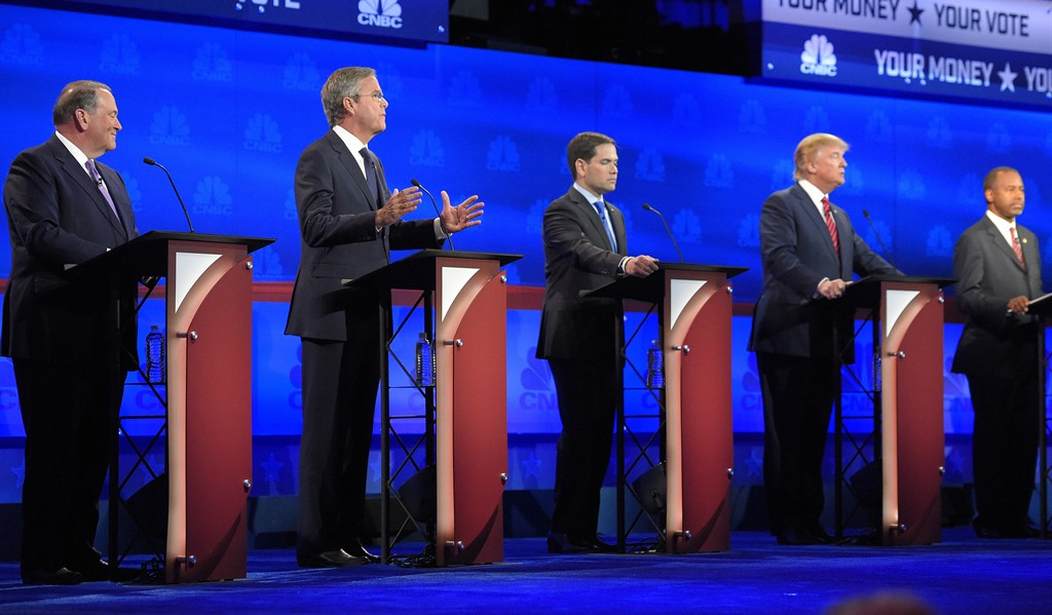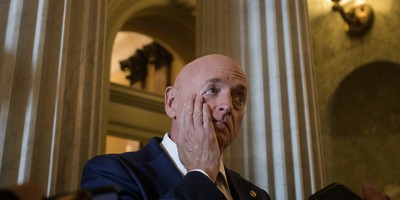The CNBC debate is memorable for many reasons, with the complete lack of preparedness of the moderators standing out as unfortunate circumstance number one. At numerous points during the evening, candidates called out the moderators for the low quality of their questions. Becky Quick was obviously biased against the candidates and repeatedly steered the discussion to “Pay Inequality” only to be viciously rebuffed. At one point, Quick couldn’t remember where she’d heard that Donald Trump was critical of Mark Zuckerberg’s immigration stance. Trump capitalized on her apparent confusion by cutting her off and declaring, “Probably, I don’t know. You people write this stuff.”
An exchange between CNBC’s Carl Quintinalla and Dr. Carson brought loud boos from the debate audience and resulted in him asking aloud “See? They know” referring to the GOP candidates accusing the moderators of being biased against them. Late in the debate, the moderators actually broached the subject of fantasy football; making a mockery of the serious issues facing the nation at this time. While the candidates did a wonderful job of rebutting that question with Christie saying,
“Are we really talking about getting government involved in fantasy football? Wait a second, we have $19 trillion in debt, we have people out of work, we have ISIS and Al Qaeda attacking us and we are talking about fantasy football? Can we stop? Can we stop? Seriously?“
It was a waste of valuable time that should have been used to articulate contrasts between Clinton and Sanders’ socialist leanings and the GOP field. Notably, Jeb Bush saw no issue with the question and bragged on his fantasy football team’s record of 7-0.
As mightily as the CNBC moderators tried there was no stopping the most determined candidates from maximizing their time on answers and rebuttals and insisting on replying to any actual or perceived mention by another candidate. Consequently, there was a marked difference in the amount of speaking time each candidate was able to garner. At the top of the heap with time well over eight minutes were Rubio and Fiorina. Oddly, Kasich came in third with 8:06 minutes of pained talk time. He seemed flustered for most of the debate and failed to connect with viewers.
Recommended
Trump was fourth with 7:44 and Cruz had 6:52. Christie was probably the most focused on getting eye contact with viewers using a direct to camera type of presentation that was deliberate and sometimes a bit comical. Huckabee, Carson and Paul all had over five minutes each with Jeb Bush bringing up the rear with a paltry 4:56 minutes of bland and sometimes destructive speaking time.
Bush’s strategy seemed to hinge on attacking his former protégé on the amount of time Rubio spends on the campaign trail, missing key Senate votes. On it’s face this could have been a strategic hit for Bush, but it wasn’t because of Rubio’s high favorables across the board. Although the attack seemed low and petty it might have scored a hit had Rubio been caught flat-footed. Instead Rubio defended himself without appearing angry or petulant; going back through the historical record, noting that it’s quite common for sitting senators running as presidential candidates to miss votes. Rubio managed to look comfortable and ended his defense by complimenting Bush, which was the deadliest and most delicious part. Many viewers online characterized Bush’s campaign as “done” after that exchange.
The entire night was a study in contrasts with the DNC debate, which was an apparent contest to see which candidate could promise the most freebies to voters. In future debates it is of the utmost import that moderators be chosen who will ask policy based questions that contrast the Democrats proposals with the Republican’s. Additionally, dropping any candidate who is polling below 5% would greatly increase the amount of speaking time for each of the front-runners. This is what Republican voters want; let’s hope the RNC and Reince Priebus have learned a valuable lesson.

























Join the conversation as a VIP Member